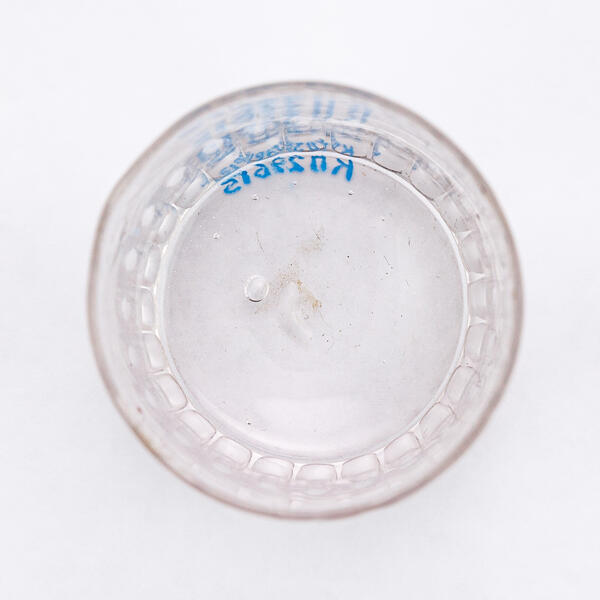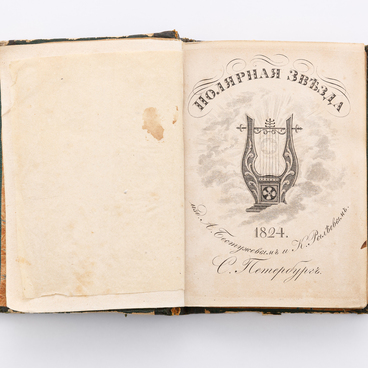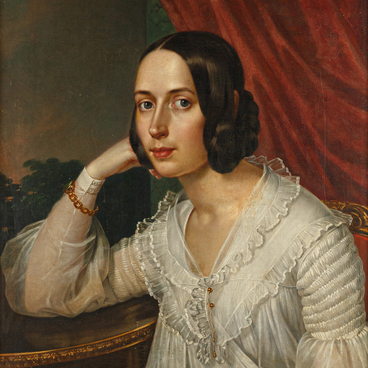The
small glass from the museum collection was given to Alexander Herzen by his
father Ivan Alexeyevich Yakovlev. There is an engraved inscription on its wall,
“To Shushka.” This was a nickname that Ivan Yakovlev gave to his young son.
Later, Alexander Herzen wrote about his father,
Small glass that belonged to Alexander Herzen
[Ivan Alexeyevich] was hardly ever in a good humor; he was perpetually dissatisfied with everything. A man of great intelligence and great powers of observation, he had seen, heard, and remembered an immense amount; an accomplished man of the world, he could be extremely amiable and interesting, but he did not care to be so and sank more and more into wayward unsociability. It is hard to say exactly what it was that put so much bitterness and spleen into his blood.
However, Ivan Yakovlev was gentle with his son and cared about him greatly, sometimes even coddling him too much. Trying to keep his son from catching a cold, Ivan Yakovlev hardly ever let him out of his room in winter, and if the boy was allowed to have a ride, he not only wore a fur coat and a warm shawl but was also covered with neckpieces and scarves. To protect the boy from having indigestion, his father made him observe a strict diet. If Shushka, lying in his overheated room, wrapped in fur, blankets, and scarves, threw a tantrum, his father would let him break expensive toys. If that did not help, Ivan Yakovlev took him in his arms and carried him around the room until the boy was calm again. The young Sasha was pampered by many of the adults around him. Visiting his family several times a day to share his news with them, Lev Alexeyevich Yakovlev, known as the Senator, would always bring a new expensive toy to his nephew. Sasha would soon break it.
Ivan Yakovlev and his son Alexander Herzen had different surnames because the future writer was born out of wedlock. His mother Henriette Wilhelmina Luisa Haag was the daughter of a minor German official, a treasury chamber clerk. The surname that Ivan Yakovlev gave to his son was also of German origin. It meant that he was a “child of his heart” (from the German “von Herzen” meaning “from the heart”).




